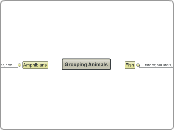Grouping Animals
Fish
Minnow, cod, shark, goldfish
These live in water and are usually streamlined in shape. Their bodies are covered in scales and they have fins to help them move. They usually lay eggs and they get their oxygen from the water through their gills. Some fish have soft bones called cartilage, for example the sharks. Cod and herring have hard bones.
Reptiles
Snake, lizard, crocodile, tortoise
Instead of moist skins the reptiles have dry, scaly skins. Most of them lay eggs, but not in the water. They use their lungs to get oxygen from the air. Tortoises live on land, but many turtles need to live in water. Crocodiles also like to live in water but can move fast on land. An adder is an example of a UK reptile.
Mammals
Mouse, whale, dog, horse
These are all animals that suckle their young (feed them milk from the mother's mammary glands). All mammals have hair or fur on their bodies. They are usually born alive although there are exceptions to this like the duck-billed platypus which hatch from eggs.
Arachnids
Spider, scorpion
Arachnids (or spiders) always have eight legs.
They have two parts to their body and they never have wings.
Some spiders and scorpions have a poisonous bite or sting.
Annelids
Earthworm
The most well known example of an annelid is the earthworm.
They have a long thin body which is divided into little rings (segments).
They usually live in the soil.
Amphibians
Frog, toad, newt
Some of these also live in water but most have to live in moist areas. This is because they get a lot of their oxygen through their skin, not just through their lungs. The young hatch fom eggs in the water and they have gills. Frogs and toads are very similar. Newts have tails.
Birds
Thrush, robin, eagle, owl
These have feathers instead of scales, except on their legs and feet. All birds have wings but not all can fly. The kiwi and the emu can't fly, and neither can the penguin, but it can move fast in water. Ducks float on the water.
Insects
Ant, butterfly, earwig, fly
SubtopicInsects always have six legs and three parts to their body.
Some insects have either one or two pairs of wings
Molluscs
snail, slug, octopus
The molluscs have a muscular foot and a soft body.
They have no legs. Some molluscs have shel
